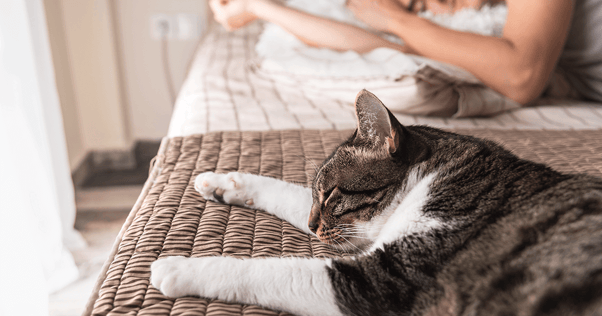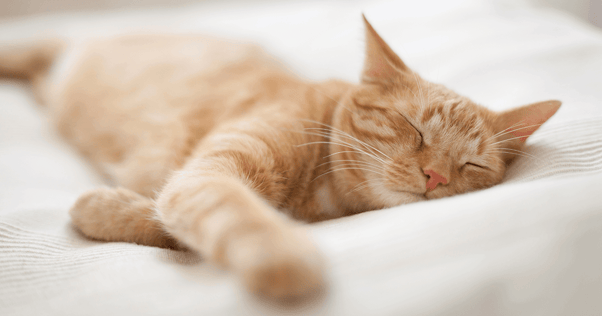What Time Of Day Do Cats Sleep The Most?
Cats are intriguing, mystifying creatures, and not least of all when we’re discussing their sleeping patterns. How many hours a day do cats sleep? When do they snooze the most? And when are cats most active? For many cat parents, deciphering the intricate web of their feline friends’ sleeping habits can be quite a puzzler. So, with that in mind, the only thing left to do is unravel these mysteries together!
When Are Cats Most Active?
Cats are predominantly crepuscular. This means they’re at their most active during the twilight hours of dusk and dawn. If you’ve ever noticed your feline friend suddenly bursting with energy during these times, that’s their natural rhythm shining through.
This behaviour is a throwback to our domesticated cats’ wild ancestors who used to hunt when their prey was most active. This evening activity stems from the fact that their modern prey, such as rodents, are primarily active during these hours. On that note, cats are extremely adaptable. It’s not uncommon for cat sleep cycles to change to fit in with their humans too!

When Do Cats Sleep?
So, if cats are most active during dusk and dawn, when do they find time to sleep? And how many hours a day do cats sleep? The answers to these common questions actually vary depending on your cat’s age.
Kittens, with their tiny bodies and rapid growth, require a vast amount of sleep. They might spend most of the day in dreamland, waking up only for meals and brief sessions of play. As they mature, cat sleep cycles tend to undergo a transformation. Adult cats sleep less than kittens but can still average anywhere between 12 to 20 hours of sleep per day in what’s called a ‘polyphasic’ sleep pattern. This means they have multiple short sleeps rather than one long period of sleep as humans do.
While 12 to 20 hours of sleep a day might seem like quite a broad range when answering the question ‘How long do cats sleep?’, there are various factors that can influence the sleep cycles of each cat. Health, activity levels, and age can all have an effect on a cat’s sleep duration. For instance, excluding their brief period as kittens, cats tend to sleep more as they grow older.

Changes In Cat Sleep Patterns
If you notice a change in your cat’s sleep pattern, and none of the factors mentioned above seem to be applicable, it’s strongly recommended that you contact a vet. There may be an underlying medical reason for the changes in your cat’s behaviour and they will be best able to help.
Alternatively, it’s possible these changes could be indicative of stress. Whether it’s due to a new family member in the household or changes in the environment, our feline companions can feel the strain. While you should still speak to a vet to understand these changes, you could also consider using FELIWAY Optimum. This is a diffuser for your home that has been specially developed to help solve the common signs of stress in cats. Simply plug FELIWAY Optimum in and the diffuser will get to work, releasing an odourless pheromone complex to boost your cat’s serenity!
Are you interested in learning more about your cat’s behaviour, or would like to know how to get the most out of our FELIWAY range? We’d love to hear from you and share all the advice we can! You can also stay informed with all our latest tips and product advice by signing up to our newsletter.
